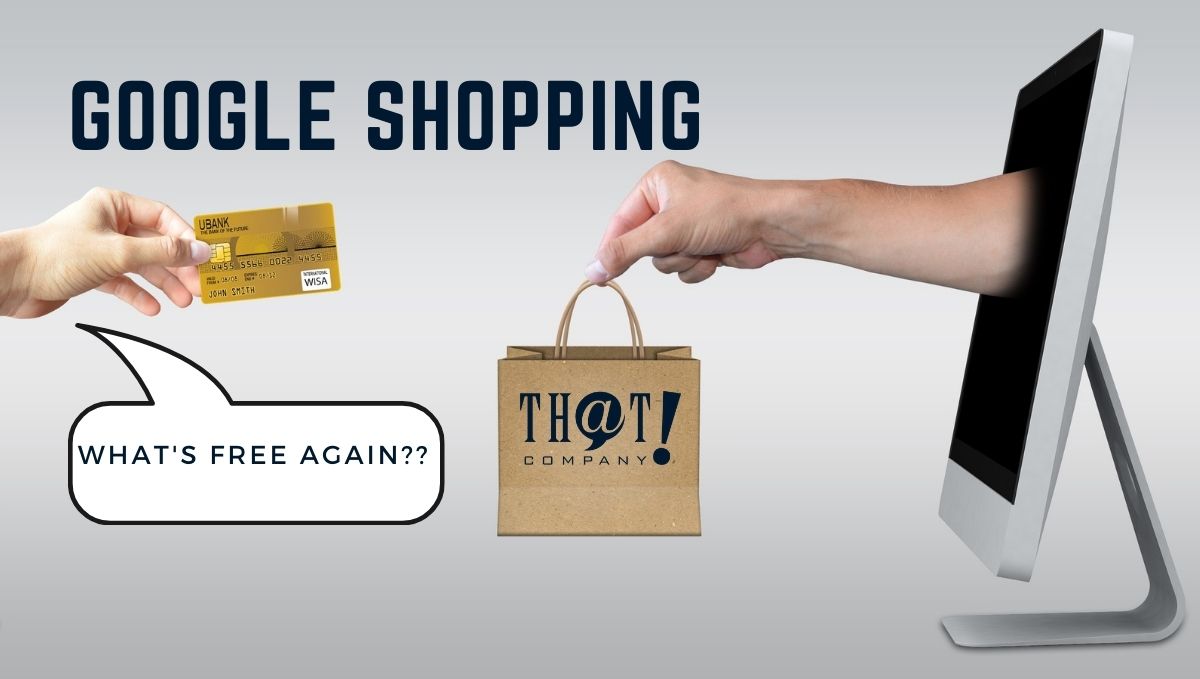
It is now Free to Sell on Google (Not really)
It certainly looks good. Google is getting a TON of great press on this. They might even try to portray to the layman reporter who just willingly and gladly spouts Google’s propaganda without researching or understanding it that this is a fantastic act of charity on Google’s part.
But come on Google, the Pro’s know better <Wink> we will not tell anyone how this helps you or your bottom line. Or will we?
Let us start with the communication we sent out to our white label PPC partners and clients:
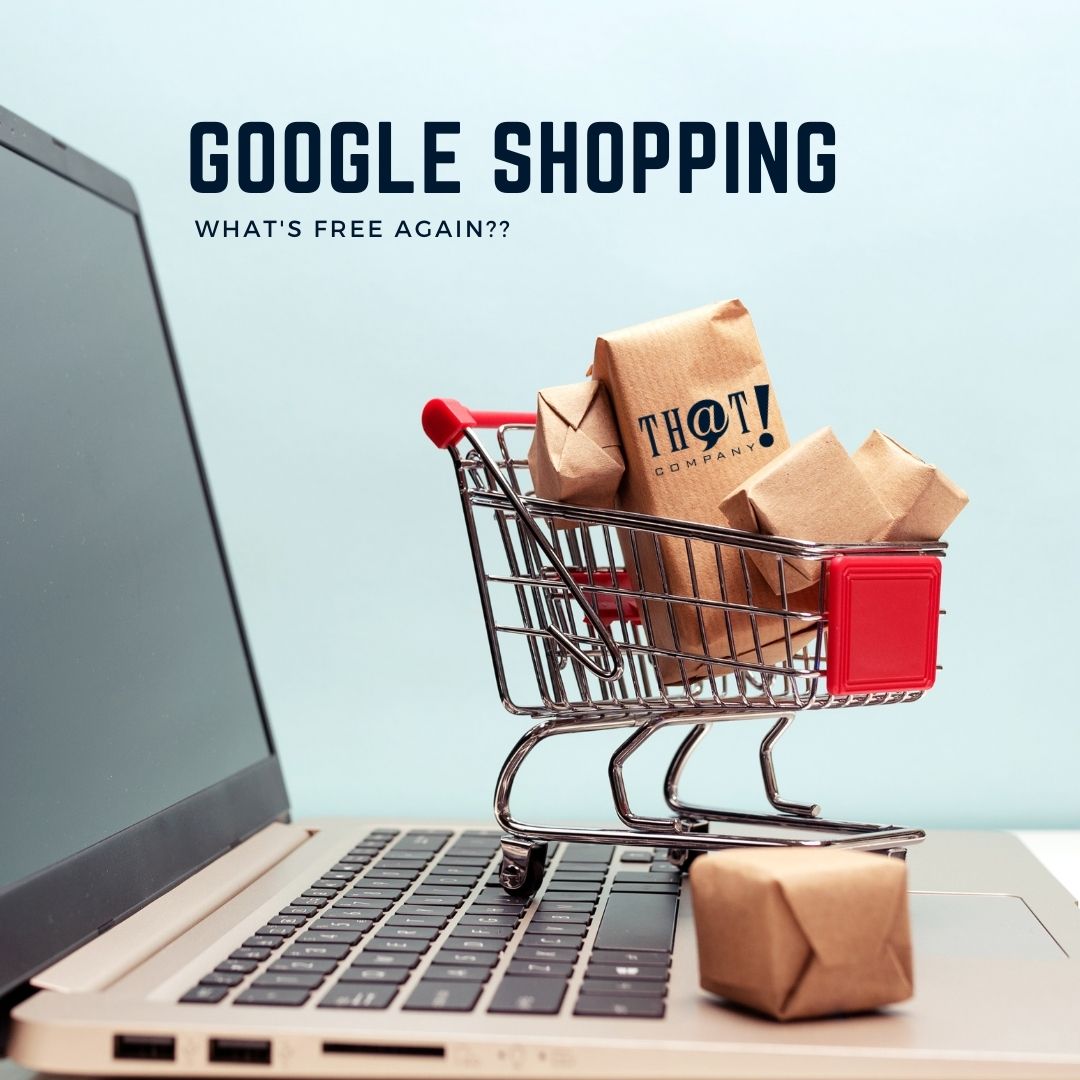
Dear [CLIENT NAME]
As you may have already heard today, Google just released an article relaying, in the subject line, that “It’s now free to sell on Google.” There have been some eyebrows raised by several people since this article was released yesterday, and it is justified.
Reading just the subject itself, one might think that this means they would not have to pay for Google Shopping Ads in paid search. I am writing this email to let you know that we are aware of this (number 1), and (number 2) also to set the record straight.
So, I will just say it outright… Google Ads are NOT FREE. Our clients are still going to have to pay for their Google Shopping Ads that appear on top of a Google SERP. Nothing is changing there. What has changed is that Google is allowing advertisers to now show their product under the Google Shopping “Tab” for free. They used to do this years ago under the name “Froogle,” but have since switched to a completely paid service, meaning that only advertisers were eligible to show their ads on the Google Shopping Page, as well as paying for their Google Shopping Ads in paid search.
That is what has changed. Nothing more. Our paid search ads are still going to appear on top of the organic SERPs, and on top of the Google Shopping Page listings as well. I wanted to be the first to alert you to this, as we are quite aware that some people may come asking about this, and I want you to be aware of it as well so that you can answer their questions accurately. If you would like to read more about it, I have a couple of articles that you can read. Here they are:
Here is the actual Google Article that they released with their explanation. It is a bit vague, but if you know what to look for you can understand exactly what they are saying:
https://www.blog.google/products/shopping/its-now-free-to-sell-on-google/
…I preferred Search Engine Lands article about this subject as it was a little more transparent:
https://searchengineland.com/in-major-shift-google-shopping-opens-up-to-free-product-listings-333288
So, in closing, I just want you to be aware of this change that Google is about to release starting next week. Also, if you have any questions, please do not hesitate to ask, and we will do our absolute best to help clarify this event for you further.
Thanks for your time,
Your Consultant
Did you catch that? Google Shopping Ads are not FREE? What? Say it ain’t so!
But Google said, “It’s now Free to Sell on Google.”
So, who’s telling the truth here?
Well like all “truths” there are a few sides, and I’m going to try to unpack all of this for you so you can understand what you get, why it’s a good deal for you (if you don’t advertise now), and why it’s NOT a good deal for current advertisers, and why it’s a REALLY GOOD deal for Google.
First, what do you get?
Well you might think that your product will be shown on a Google Search like this: Search for Tennis Shoes
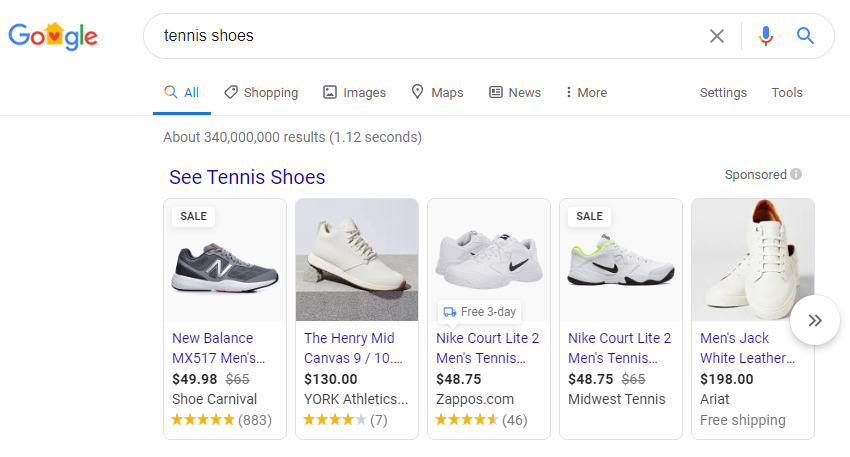
That’s Google Shopping Right?
Well kinda… It used to be. When Google Shopping was free, it was known as Froogle. Here is a little history (source Wikipedia). It was created by Craig Nevill-Manning and launched in December 2002, Froogle was different from most other price comparison services in that it used Google’s web crawler to index product data from the websites of vendors instead of using paid submissions. As with Google Search, Froogle was instead monetized using Google’s AdWords keyword advertising platform.
With its re-branding as Google Product Search, the service was changed to emphasize integration with Google Search; listings from the service could now appear alongside web search results./white-label-marketing/what-is-white-label/white-label-branding-in-digital-marketing-services
Change to paid listings
Alongside the announcement of an immediate re-brand to Google Shopping on May 31, 2012, Google also announced that in late 2012, it would change the service to use a “pay-to-play” model, where merchants would have to pay Google to list their products on the service, with results influenced by both relevance and the bid amounts they pay. Google justified the move by stating that it would allow the service to “deliver the best answers for people searching for products and help connect merchants with the right customers
So you can see that Froogle (standalone), became Google Product Search (integrated with Google Search) and then Google Shopping (Pay to Play Google Product Search).
So, it’s going to be Free Google Shopping Right?
Wrong. What Google is now offering is to include products in the Google Shopping “Tab.” While yes, it is free, it is different from Google Shopping results that appear directly in Google Search results.
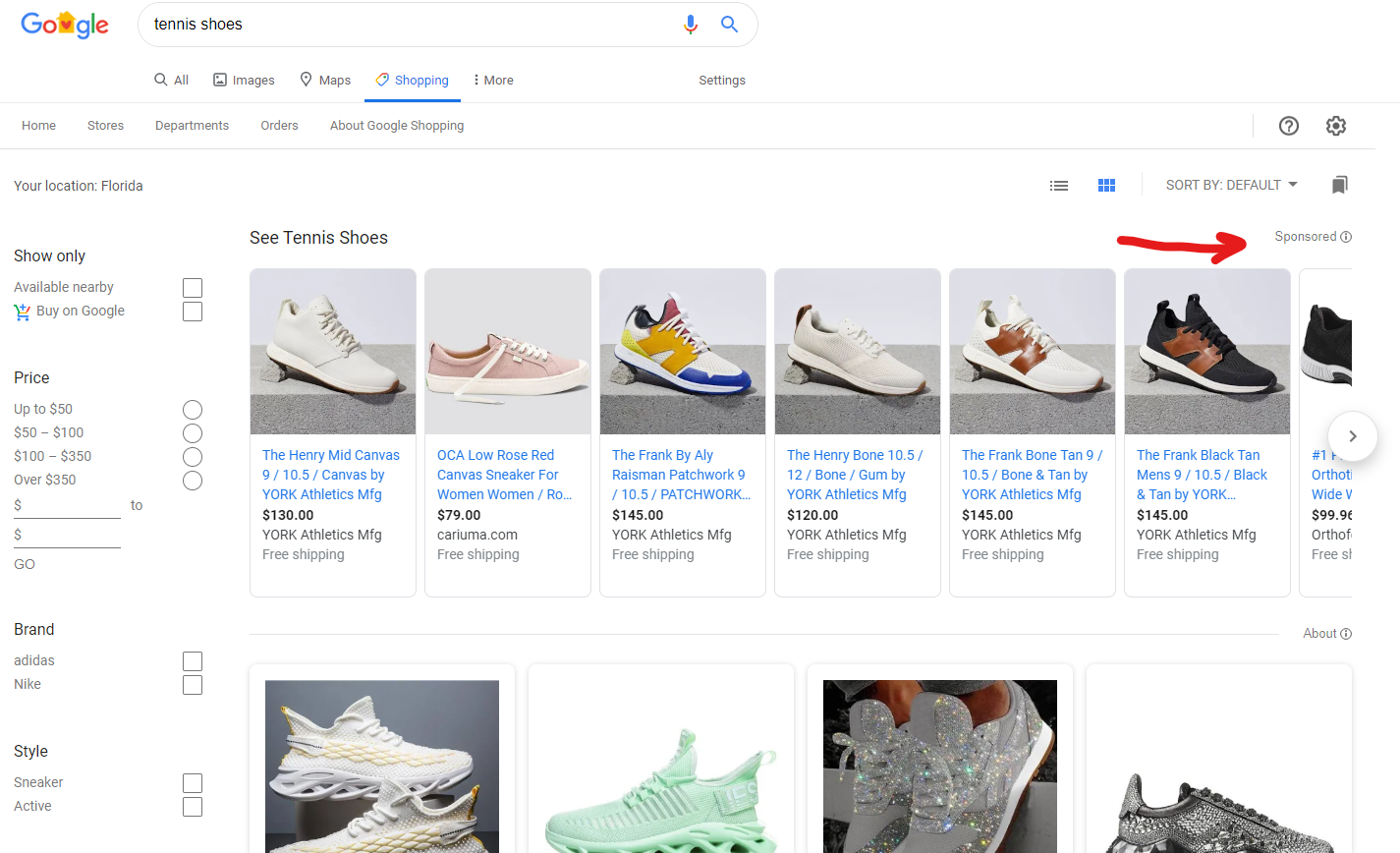
Well, It’s still Free Google Shopping (kinda) That’s Good for Advertisers Right?
Again, Wrong. Why isn’t it good for advertisers? Simple Supply and Demand. You see right now demand for Google Advertising is dropping. Understandably marketers and advertisers that are having difficulty shipping or staying open during the COVID-19 pandemic are pulling back their budgets. So, while it might “seem” like a charitable thing for Google to offer free Google Shopping, it’s not. It is just self-serving greed to get more out of the advertisers that remain.
With a drop in competition, the remaining advertisers do not have to “fight” as much to see their products get traffic, so naturally, they lower their bids. This is a double whammy for Google. Not only have they lost advertisers that have pulled out, but they are also getting lower CPC (Cost per Click) from the advertisers that remain.
[bctt tweet=”Nothings free and nothing is as it seems, from the mighty Public Relations Machine of Google.” username=”ThatCompanycom”]The Solution to Google’s Falling Revenue
The Solution? Fill up the platform with free listings. In other words, increase the competition. Increased competition increases the costs for advertisers. It’s a simple move to get CPC to rise from the advertisers that have been loyally staying with Google. Hey, I do not blame Google. It is a shrewd move to increase revenue. The part I do not like is that they are “spinning” it as though it is a charitable move to better the world. It is working the press is “eating it up” right from the palm of the Google PR hand. Nicely played.
What should advertisers do?
The best that you can in any ever-changing environment. Stick to the basics. Hyper Manage your campaigns, focus on ROAS, and do the best you can. Take the “free” listings just like everyone else. But keep your ad budgets concentrated on what’s working. But do not drink the Kool-Aid just yet. Nothings free and nothing is as it seems, from the mighty Public Relations Machine of Google. If it all becomes too difficult and way over your head, hire someone to handle your PPC management services, and take the headache out of your hands…or head. Because at the end of the day, it is all about getting your ad spend.

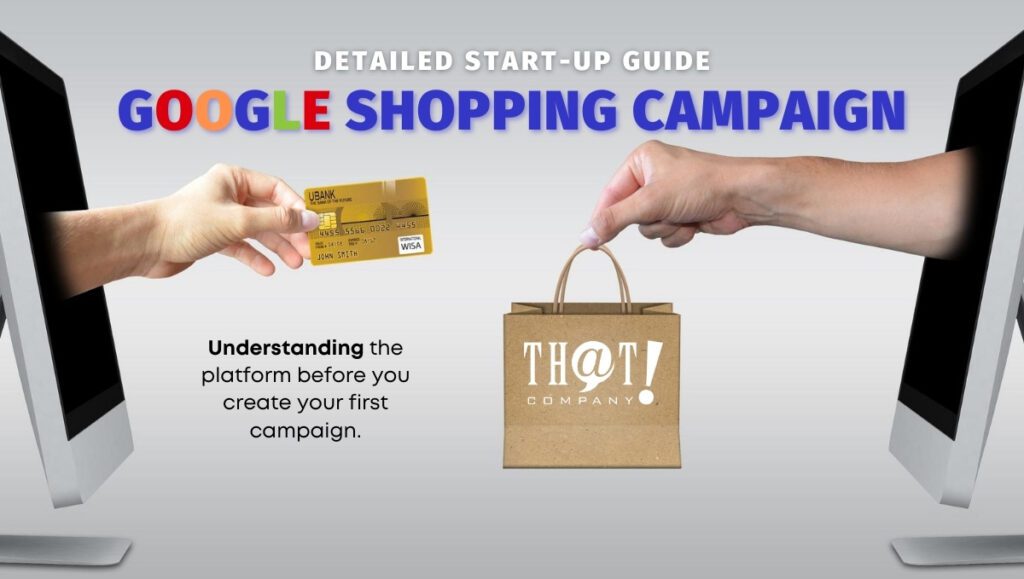










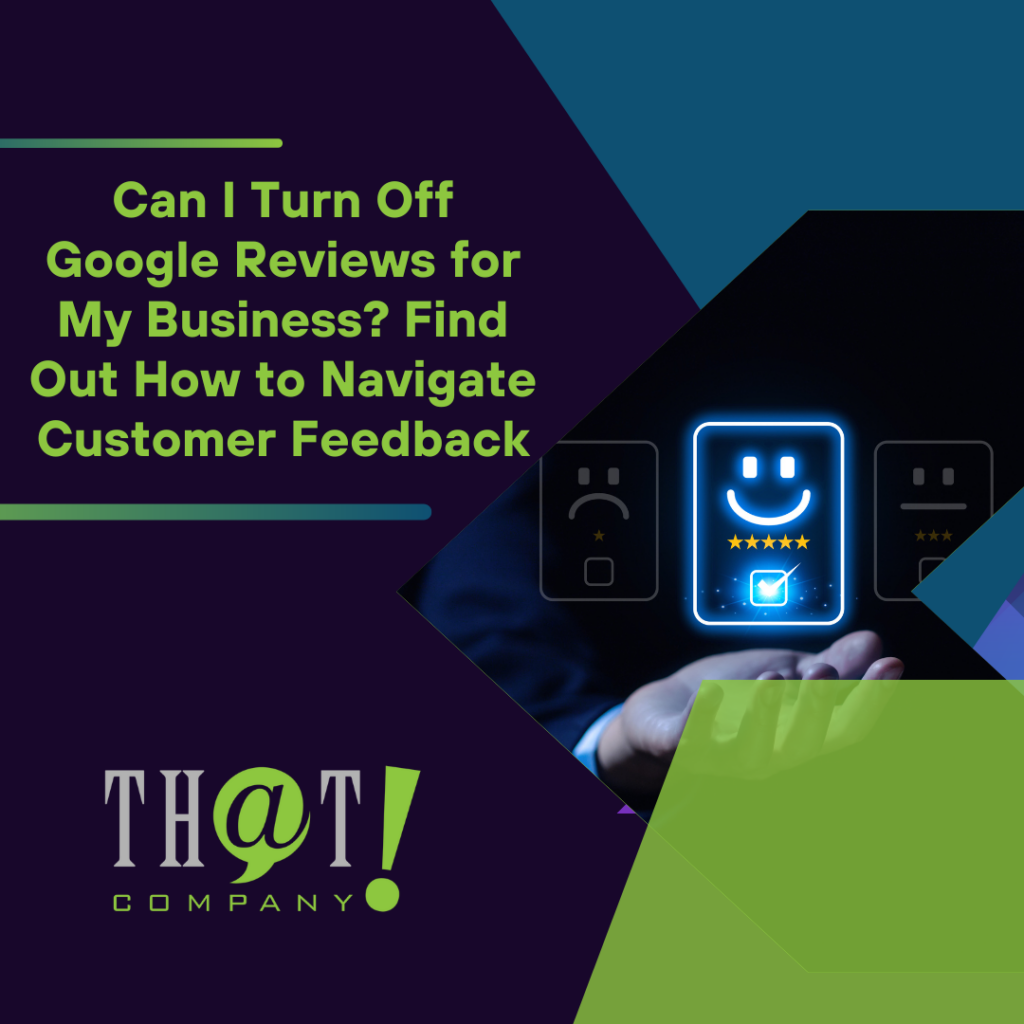
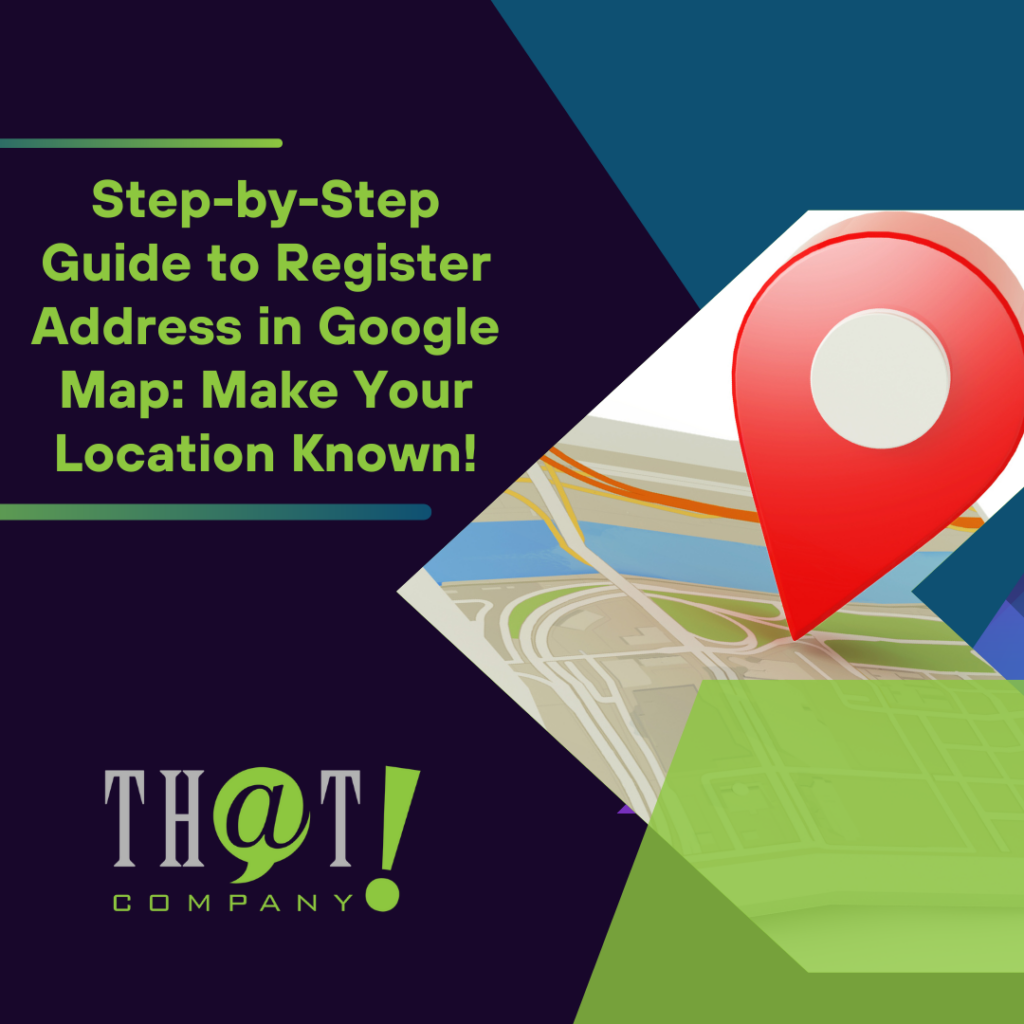
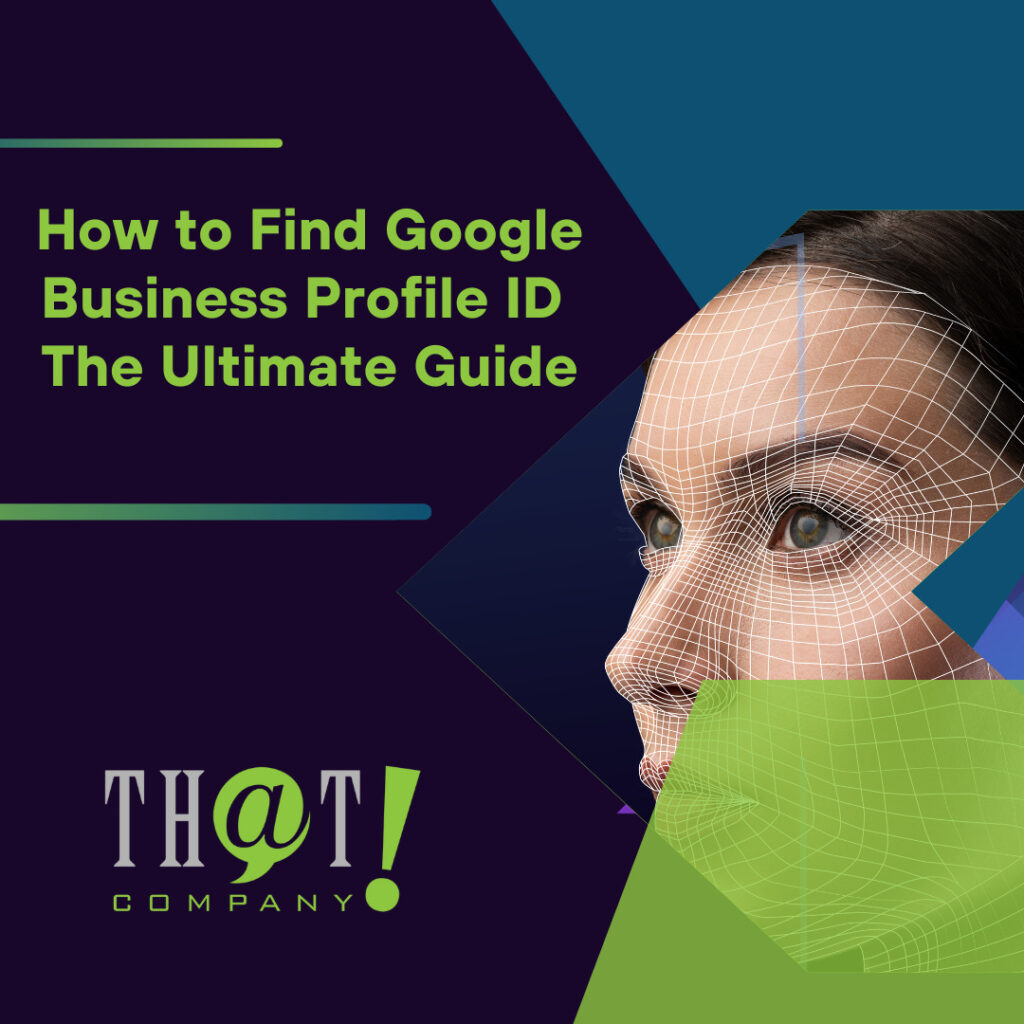
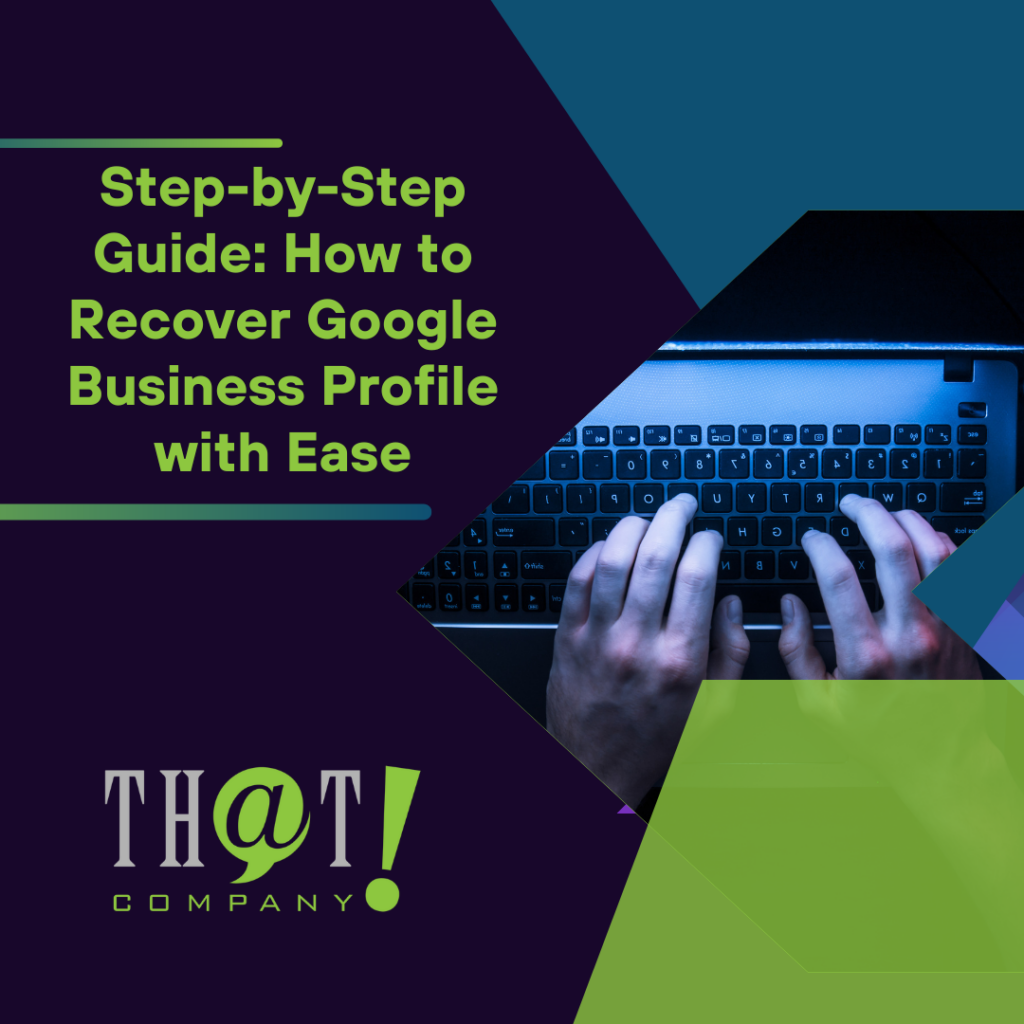











 Talk With Us
Talk With Us  Give Some Love
Give Some Love 


